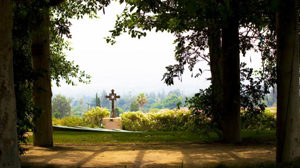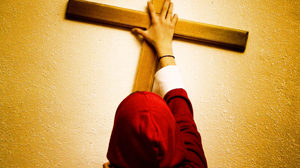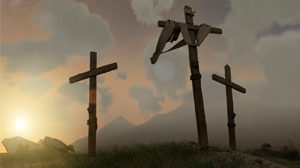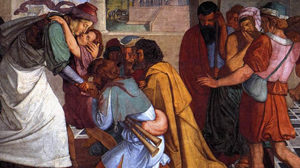Amos 7:12-15
Ephesians 1:3-14
Mark 6:7-13
Reflection:
This reflection was written to all of our returning staff and faculty at Holy Family Cristo Rey Catholic H.S., going into our 9th year of evangelization and academic achievement. Our school is guided by the Word of God. The Sacred Scripture, the Bible, is a Light which enlightens every experience we have in carrying out the mission of Cristo Rey. There are so many challenges that resist the coming of the Kingdom of God, that it takes a Light greater than human to guide us. Start with any sin that destroys dignity and trust between two people. The primary dimension of the HFCRCHS mission (there are three dimensions) is that we are building the Kingdom of God by providing a “Catholic environment.” You will hear me refer to “the Catholic Christian Tradition (CCT),” in respect to the various Christian denominations, and other religions to which our staff and students adhere. This weekend (7/12/15) the CCT has us reflect on being prophets in our very ordinary lives, and as bearers of the Good News, that we “stay where we are” as regards the people to whom we are sent. “Wherever you enter a house, stay there until you leave.” Mk. 6:10
Every student who enters our classrooms is entering a “safe” house where they can open up to you and can admit, “I don’t know this.” Surrender and vulnerability are fertile ground for learning. Yes, every faculty member commits to doing all that is possible to see all of our graduates succeed through college. When we welcome these students into our “house” we are providing the respect for each person’s inherent dignity. Pope Francis stated, “The mere fact that some people are born in places with fewer resources or less development does not justify the fact that they are living with less dignity.” (Joy of the Gospel, #90)
Creating this environment is being prophetic, like Amos, whom we read about in the Book of Amos 7, 12-15. He was chosen from a simple occupation (no royal patronage or privilege) and carried out what he was called to do. He called people to return to their integrity, because the opposite behavior is doom. Though he received resistance and rejection, his message was truthful, consistent and, eventually, fulfilled. Even though we will be up against unpredictable situations, feeling overwhelmed, and unprepared, God has equipped us with what we need to accomplish all, “so immeasurably generous is God’s favor to us.” Eph. 1:8.
Essential to carrying out this mission to provide a “safe house” for our students is our close attachment to Christ Jesus in prayer. Providing Him with a residence, in our “intimate home of the heart,” we are allowing Christ’s saving power to take possession of us. We will further his prophetic ministry. We are actually chosen in all of our brokenness and vulnerability. So the question is: “do I accept that I am chosen to continue the work He had begun, to preach His Gospel and through healings, to conquer the forces of evil that threatens that reign?” Too strong a question? Not really, given the environment in which we choose to locate ourselves with the mission that saves young lives. “Staying there” is the only witness that changes lives. My limitations are what allow the Gospel “to appear in all its power.” I depend upon entering into the minds and hearts of our students and parents through their welcome and openness to what I have to share, rather than, my power, privilege or popularity. We do this through His Bodily Presence in the Church and the Eucharist.
Father Alex Steinmiller, C.P. is president of Holy Family Cristo Rey Catholic High School, Birmingham, Alabama.








